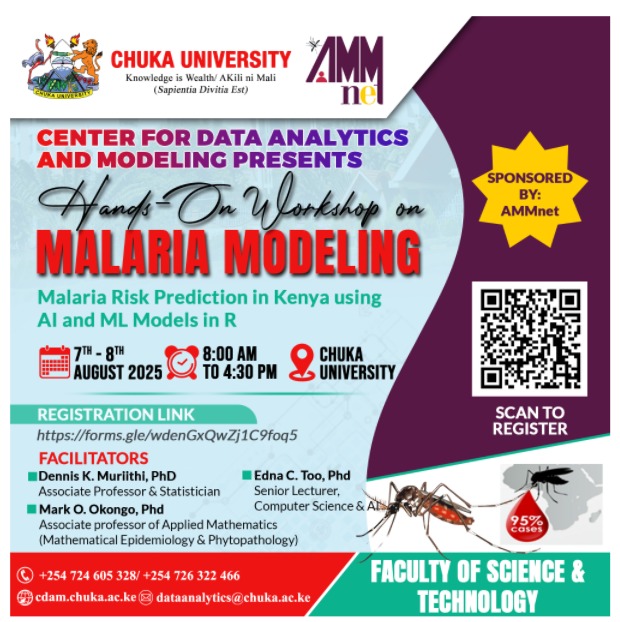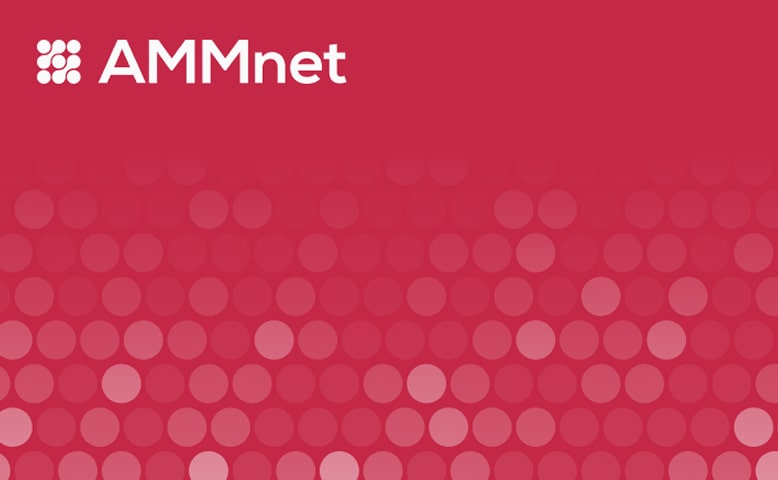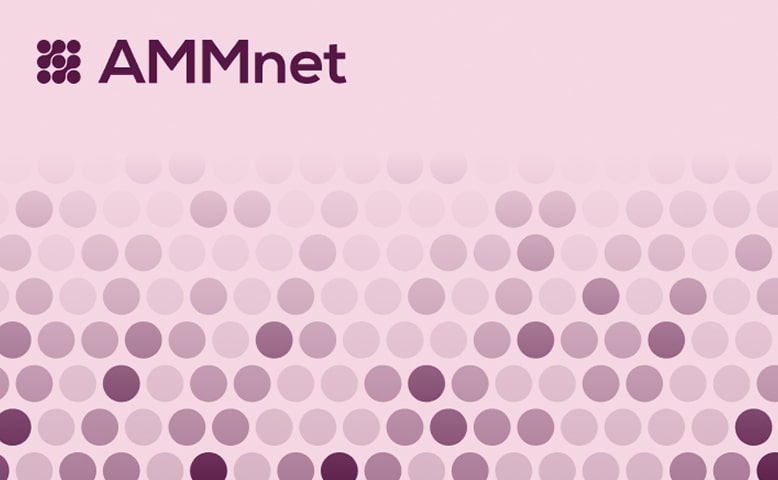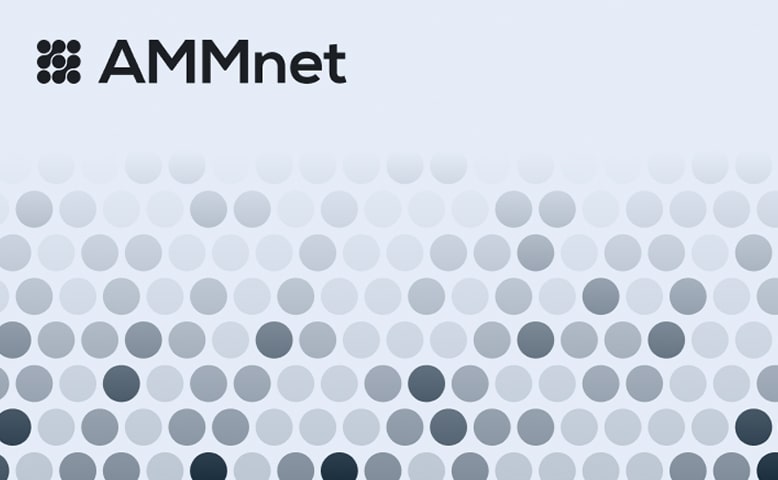Welcome to the July 2025 newsletter!
Please contact info@ammnet.org if you would like to contribute any items to next month’s newsletter.
AMMnet Annual Meeting in Dakar, Senegal
It is with great pleasure to announce that the AMMnet Annual Meeting, which took place in Dakar, Senegal from June 25-27 was successful. We partnered with the RBM Partnership to End Malaria’s Surveillance, Monitoring and Evaluation Working Group (RBM SME WG) and held consecutive meetings.
We were excited to bring together professionals and experts from the malaria analytics field to share insights, exchange ideas, and foster collaboration under that year’s theme, From Data to Decisions for Policy and Practice.
Our July monthly seminar focused on debriefing from the AMMnet Annual Meeting. Please find the seminar recording in the button below.
Read the report summaries from MESA correspondents by clicking the button below.
Find the AMMnet Annual Meeting Debrief Seminar Recording Here!Read the MESA Meeting Reports Here!
Register for the AMMnet Monthly Seminar
August 5, 2025, 15 hr UTC
Principles for slowing artemisinin resistance in Africa
Presenter: Professor Maciej F Boni
Registration notice:
Please note that the seminar is scheduled to begin at 15:00 UTC. To ensure all attendees attend at the correct time, if the Zoom invite doesn't reflect the correct start time upon registration, then please notify us at info@ammnet.org and manually update the time to 15:00 UTC. We appreciate your understanding and cooperation.
PSA: Real-time interpretation to French and Portuguese will be available.
Register Here for the Seminar Series
Missed a hackathon? Catch up on the AMMnet Hackathon blog!
Access recordings and resources from past events -- from Data Wrangling to Mapping in R (you'll even find a session en français!)
We invite instructors of other languages to lead sessions. Reach out to info@ammnet.org if you are interested in leading a session in French or Portuguese.
Find the AMMnet Hackathon blog here
Call for Reviewers – Best Practices Committee
The Best Practices Committee is seeking members to help review new documents for publication on the AMMnet website. These upcoming documents include:
- The Five Most Common Misconceptions About Modelling – and how to address them
- Overview of Modelling Types and Purposes – as applied to malaria-related questions
If you're interested in contributing to this important work, please contact us at info@ammnet.org.
AMMnet Small Events Award
The Small Event Award applications are under review. We received around 50 applications from countries such as Ghana, Nigeria, Kenya, Burkina Faso, Benin, Ethiopia, Togo, Rwanda and Cameroon.
We look forward to sharing our next awardees with you soon! Look for an announcement to come in the upcoming weeks.
Job Opportunities
Senior Malaria Researcher
GiveWell is seeking a Senior Malaria Researcher to help us direct hundreds of millions of dollars annually (we directed ~$250 million in 2024) to the most cost-effective malaria prevention programs that we can find. You will have an outsized influence on our funding decisions and help us save and improve lives on a global scale.
You will be joining a small grantmaking team to contribute to our ambitious research agenda on malaria. You’ll sift through the countless questions we could try to answer, and honing in on those that matter most. You’ll also communicate externally about your work and mentor and advise other researchers on the team.
You will shape a research agenda that brings rigor and creativity to the thorniest questions the GiveWell malaria team faces. Your work will combine empirical evidence review and critical synthesis, cost-effectiveness modeling, discussions with subject matter experts, understanding of the broader context, and your own judgment.
Find more information and apply here
AHADI is hiring two analysis positions!
We are looking for a Health Economist and an Epidemiologist/Biostatistician with strong quantitative and public health skills and interests in using analytics to support priority-setting and decision-making in countries with high disease burden. If you’re a strong analyst, with a keen curiosity and a proactive problem-solving mindset, and interested in supporting self-reliance in public health analytics in Africa, this role could be for you!
- Location: Flexible in Africa
- Start Date: Q3-Q4 2025
Why AHADI?
- Work with a values-driven team committed to reducing disease burden through analytics.
- We are focused on strengthening self-reliance in public health analytics in countries.
- Collaborate with global teams to build scalable solutions for public health.
Visit the job postings on our website to learn more about these positions and apply.
Courses and Learning Opportunities
Data Analysis and Visualization Using R
Sunday Weekly Course Series led by Shakira Babirye
Delivery Mode: Virtual via AMMnet Zoom
Schedule: Every Sunday, 7:00–8:00 AM GMT +03 (East African Time)
Instructor: Shakira Babirye, Biostatistician/Data Scientist, Infectious Diseases Research Collaboration (IDRC)
Contact: bbrshakira@gmail.com
If you'd like to join the virtual session on Sundays, contact Shakira at the email above and she'll send you a Zoom link.
You'll find recordings of Shakira's previous sessions on the AMMnet YouTube at the link below.
AMMnet YouTube Channel-Course Recordings
Malaria Modelling Fellowship Application
The Nigeria Malaria Modelling Fellowship (MMF) is an initiative to build the mathematical modelling capacity of public health professionals in Nigeria. The Fellowship will expose participants to a comprehensive curriculum that includes core modelling content, in-depth knowledge of malaria epidemiology including transmission dynamics, and adjunct modules crucial to enhancing their careers and equipping them with in-demand modelling competence. Funded by the Gates Foundation, the Fellowship is a collaborative effort between Corona Management Systems (CMS), National Malaria Elimination Programme (NMEP), Nigeria Centre for Disease Control and Prevention (NCDC), and the World Health Organization (WHO).
The fellowship objectives are:
- To Increase the number of doctoral and post-doctoral-level trained mathematical modelers with malaria expertise based at Nigerian institutions.
- To Increase the capacity of the National Malaria Elimination Program (NMEP) on modelling approaches as a tool that can support strategic planning and evaluation
- To Increase the capacity of the Nigeria Field Epidemiology Training Program (NFETP) to provide modelling fellowships
Application Deadline: 20th July 2025.
MASHA call for applications: Mathematical Modelling of Infectious Diseases Course 2025
The Modelling and Simulation Hub, Africa (MASHA) will be hosting a two week short course on the Mathematical Modelling of Infectious Diseases. This short course will focus on the application of mathematical modelling and computer simulation to predict the dynamics of infectious diseases to evaluate the potential impact of policy in reducing morbidity and mortality.
Date: 18 August – 22 August 2025
Place: University of Cape Town
Topics: include compartmental models, spatial models, economic evaluation methods and more. The course is practically focused along with a series of lectures, discussions and practical exercises.
Fee & Funding:
- Fee of ZAR 12,520
- Postgraduate students and staff from academic institutions outside UCT, and public health officials are eligible to receive a discounted course fee.
- The course fee covers registration and lunch only. Accommodation and other meals will be for the participant’s account.
Application deadline July 31, 2025.
Click here for more information!
Liverpool School of Tropical Medicine MSc / PgD / PgC Global Health Programme
This flexible, online programme is available via distance learning if you want to continue to work as you study. Students from around the world come together to learn from a curriculum designed in consultation with employers.
Specializing in global health will set you up to lead, provide essential technical support and address the social determinants of health while decreasing the shared burden of global disease.
Boosting your skills in this critical field will give you the tools to change lives and help tackle some of the biggest challenges faced by humanity.
Sign up for more information: https://lstm.ac/MSc-GH
Click here for more information!
Kasi Academia
Kasi Academia is a database package for academic institutions offering access to high-quality African data for faculty, researchers, and students. This enables academic communities to leverage real-world data for research, teaching, and analysis. The Kasi Academia Data Portal includes over 600 curated datasets and 60 million data points from thousands of consumers across 20+ African countries, making it a valuable resource for studying consumer attitudes and trends, economic patterns, and social behaviors. The Kasi Academia survey infrastructure allows researchers to execute custom research projects and pair their primary data with existing survey data. Survey topics include cost of living, quality of life measurements for urban residents, and health and wellness trends. Questions about Kasi Academia should be directed to info@kasiinsight.com.
Click here to visit Kasi Academia!
Applications are now open for the 2025 AREF Excell Malaria Researcher & Leadership Development Programme
AREF’s Excell malaria programme will enable 18 individual researchers from three participating institutions to build strong research careers, empower excellent teams, win research funds, work collaboratively, engage with research users – and so make an even bigger impact on improving health and saving lives.
Eligibility Requirements
- An employee of an African institution with a significant and specific role in Malaria research.
- A national of an African state
- 2-8 full years of active post-PhD research experience; or a clinician without a PhD with both an MD and research master’s and 4-8 years of active research experience.
- Not already having participated in previous Excell programme.
- AREF is keen to recruit talented researchers focusing on malaria research from a broad range of approaches, including laboratory, clinical, behavioural, social, public health, health systems, and environmental and mathematical sciences. Their research must be directed towards achieving better health outcomes in Africa and show alignment with their national Malaria research strategy, where applicable.
Application Deadline: 15th October, 2025
Click here for more information!
Workshops and Conferences
Register for the 2025 ASTMH Annual Meeting | November 9-13 in Toronto Canada
American Society of Tropical Medicine & Hygiene (ASTMH) will be holding its annual meeting from November 9 -13, 2025 at the Metro Toronto Convention Centre. Find more information below!
Subgroups, Working Groups, and Regional Activities
AMMnet currently has four established local chapters.
If you would like to be connected with local chapters in Cameroon, Liberia, Uganda or Zambia, you may send email using the respective addresses below.
- AMMnet Uganda Chapter, ammnetuganda@gmail.com
- Applied Malaria Modeling Network Zambia, ammnetzambia@gmail.com
- AMMnet Liberia Chapter, ammnet.liberia@gmail.com
- AMMnet Cameroon Chapter, ammnetcameroon@gmail.com
And two new local chapters under review – Burkina Faso and Tanzania!
Establish an AMMnet Local Chapter to Strengthen Malaria Modeling and Analytics in Your Region
AMMnet’s Local Chapters bring together modelers, analysts, scientists, public health professionals, partner institutions and civil society, to work together locally to adopt common approaches to improve the use of modeling and analytics for controlling and eliminating malaria whilst reflecting the mission of Global AMMnet.
Establishing a local AMMnet chapter is a three-step process:
- Pre-registration with global AMMnet
- A completed Local Chapter Establishment Application Form
- AMMnet Board approval with guidance from the Local Chapter Review Task Force
If you are an AMMnet member and you are interested in establishing a local chapter, please refer the information and guidelines found at the link below.
If you have any questions, considerations or suggestions for establishing local AMMnet chapters, please send us an email at info@ammnet.org.
21 AMMnet local chapters are in the process of establishment. Refer to the list of those local chapters below and their stage of establishment.
Local Chapters with Establishment in Process
BeninMaliBurkina FasoMozambiqueCentral African RepublicNigerDjiboutiNigeriaDRCRwandaEthiopiaSenegalGhanaSierra LeoneGuineaTanzaniaGuinea-BissauTogoKenyaZimbabweMalawi
Send an inquiry to info@ammnet if you feel your local chapter has not been included by mistake or if you wish to be connected with a local chapter contact.
Local Chapter Information & Guidance

Member Reading Corner
Beyond insecticide treated bed nets coverage to heterogeneous human behaviors and spatial realities
Published in Frontiers in Malaria, June 2025
Abstract Snapshot:
This study examines why insecticide-treated bed nets (ITNs), while widely distributed, remain underused in urban and peri-urban settings like Accra, where fewer than 2% of children sleep under a functional ITN. Through a combination of field research and mathematical modeling, the paper uncovers how limited living space, behavioral preferences, and healthcare encounters shape ITN usage. Importantly, it demonstrates that achieving malaria elimination in urban settings requires 60% consistent ITN use per community patch—something not attainable without addressing behavioral and spatial barriers.
Key takeaway:
ITN ownership ≠ ITN usage. Without understanding and tackling the reasons behind nonadoption, malaria control efforts will remain suboptimal in cities.
If you'd like to share a paper or any other publication with the AMMnet community, send an email to info@ammnet.org and we will consider including it in the newsletter.
Spatial interpolation of health and demographic variables: Predicting malaria indicators with and without covariates
A study comparing spatial interpolation methods, machine learning and geostatistical methods to model malaria-related indicators (code included).
This study aims to compare multiple modelling frameworks to model indicators of human vulnerability to malaria (SDG Target 3.3) in Senegal.
Leveraging Routine Health Facility Data for Space-Time Modelling of Malaria Incidence at the Catchment Level in Senegal
Achieving malaria elimination requires identifying hotspots and key risk factors to guide targeted interventions. In this context, spatial models are crucial to support decision making. Yet, in elimination settings, national-level models suffer from some limitations. They often rely on prevalence survey data, which may be less reliable in low-transmission settings due to excess zeroes and under-representation of high-risk age groups. In addition, they often assume stationary risk factors, while pre-elimination strategies may lead to the emergence of (temporarily) distinct endemic profiles within countries.
To address these biases, we model malaria incidence in Senegal, targeting malaria elimination for 2030, using routine malaria data and stratifying models by transmission level.
Seminar Recap and Recordings
AMMnet Seminar Series
July 1, 2025, 15 hr UTC
Debrief of AMMnet Annual Meeting-Dakar
July’s seminar focused on a debrief of AMMnet’s Annual Meeting, held from June 25–27, 2025, in Dakar, Senegal. This session featured several speakers who shared highlights from the various trainings and panel discussions, as well as insights into what went well and the lessons learned.
We also presented feedback gathered from Annual Meeting participants, highlighting both strengths and areas for improvement. The seminar concluded with an interactive segment where we invited attendees to provide their input on what they would like to see at the next AMMnet Annual Meeting.
You may find recordings of this seminar along with others on our website or YouTube channel.
Recordings in French, English and Portuguese are available.




